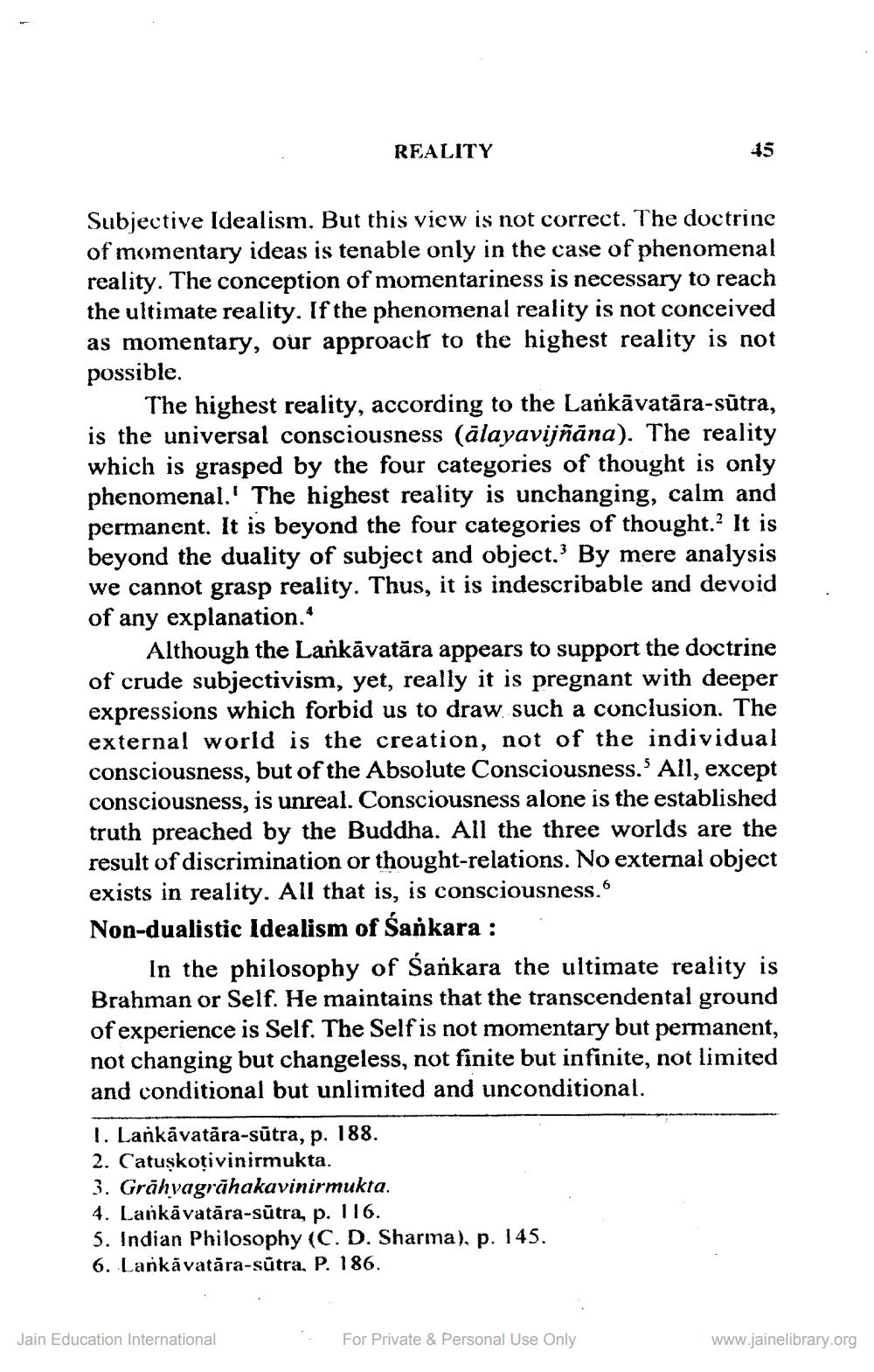________________
REALITY
45
Subjective Idealism. But this view is not correct. The doctrine of momentary ideas is tenable only in the case of phenomenal reality. The conception of momentariness is necessary to reach the ultimate reality. If the phenomenal reality is not conceived as momentary, our approach to the highest reality is not possible.
The highest reality, according to the Lankāvatāra-sūtra, is the universal consciousness (alayavijñāna). The reality which is grasped by the four categories of thought is only phenomenal.' The highest reality is unchanging, calm and permanent. It is beyond the four categories of thought.? It is beyond the duality of subject and object.? By mere analysis we cannot grasp reality. Thus, it is indescribable and devoid of any explanation."
Although the Lankāvatāra appears to support the doctrine of crude subjectivism, yet, really it is pregnant with deeper expressions which forbid us to draw such a conclusion. The external world is the creation, not of the individual consciousness, but of the Absolute Consciousness.' All, except consciousness, is unreal. Consciousness alone is the established truth preached by the Buddha. All the three worlds are the result of discrimination or thought-relations. No external object exists in reality. All that is, is consciousness. Non-dualistic Idealism of Sankara : "
In the philosophy of Sankara the ultimate reality is Brahman or Self. He maintains that the transcendental ground of experience is Self. The Self is not momentary but permanent, not changing but changeless, not finite but infinite, not limited and conditional but unlimited and unconditional. 1. Lankāvatāra-sūtra, p. 188. 2. Catuskotivinirmukta. 3. Grähvagrāhakavinirmukta. 4. Lankā vatāra-sūtra, p. 116. 5. Indian Philosophy (C. D. Sharma), p. 145. 6. Lankávatāra-sutra, P. 186.
1
Jain Education International
For Private & Personal Use Only
www.jainelibrary.org




